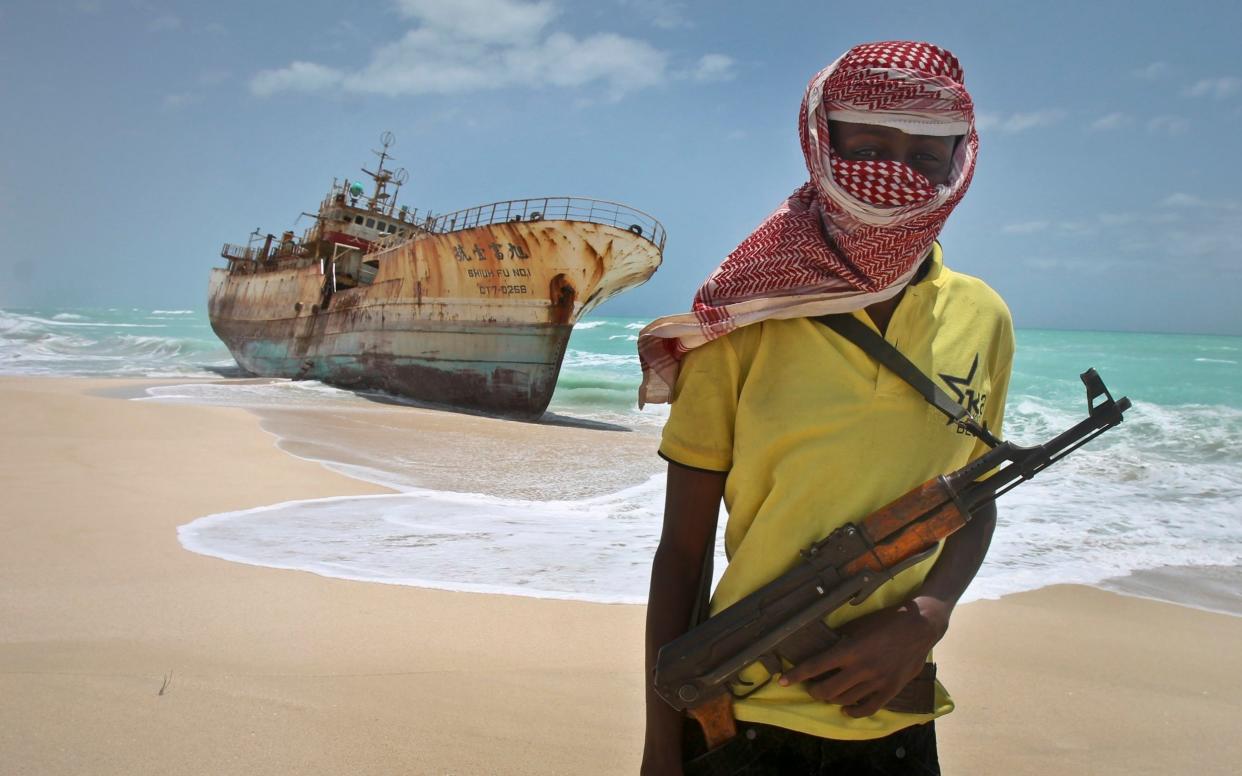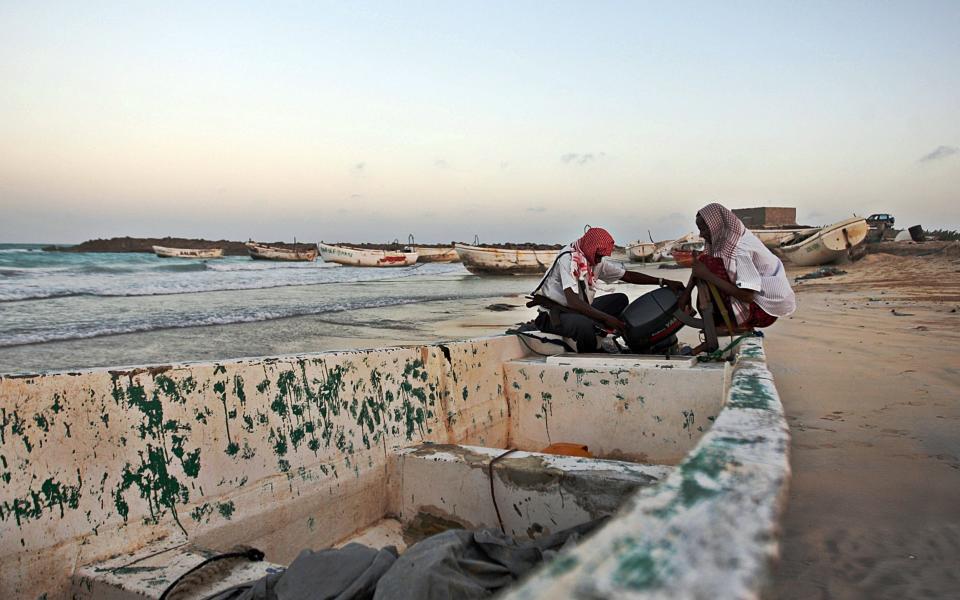British team help free Iranian sailors held in longest-ever Somali hijacking

A British-led mercy mission has helped secure the release of a group of Iranian sailors held hostage in the last and longest-running hijacking of the Somali piracy crisis.
Three crewmen from the Siraj, an Iranian fishing vessel hijacked off the Somali coast in March 2015, were freed last week after five and a half years in captivity. Their captors are said to have treated them "like goats" at times, feeding them only occasionally and not caring if they starved to death.
The deal to free the sailors - which included the payment of a $180,000 ransom - was brokered by the Hostage Support Partnership, a pro-bono organisation co-ordinated by John Steed, a retired British diplomat based in Kenya.

Since 2013, Mr Steed's team have helped to free the crews of three other hijacked ships, all of whom had been in captivity for at least three years. The ships’ owners were all uninsured, leaving them unable to pay the ransoms demanded by the pirates and robbing the hostages of any chance of freedom.
Working with Leslie Edwards, a UK-based hostage negotiation specialist, Mr Steed persuaded the pirates to accept a token "expenses" payment that was a fraction of the multi-million dollar ransoms they originally sought. The money was usually sourced from well wishers within the international shipping industry.
In the latest case involving the Siraj, private Iranian donors raised and delivered the $180,000, but the deal itself - which included complex negotiations with the pirates and securing proof that the hostages were still alive - was brokered by Mr Steed's team over the course of many months.
“This marks the end of an era of Somali piracy and the pain and suffering of Somalia’s forgotten hostages,” said Mr Steed.
Mr Steed and his team became involved in the negotiations for the Siraj after concluding that the ship’s owners, who were again believed to have been uninsured, were not going to be able to help. While the work was done with help from a number of Iranian diplomats, it is understood that the case struggled to attract attention from the highest levels of the Iranian government.
Claims were made that the hostages were left in limbo because they were Baluchis, an ethnic minority sometimes seen as second-class citizens in Iran. Four other hostages from the ship were freed two years ago, and another, Mohammed Jaffrey, was released on humanitarian grounds after he suffered from serious ill-health. Pictures of him taken during captivity showed that he was so malnourished that he appeared to have aged prematurely.
The case will be seen as a rare example of British and Iranian co-operation on hostage affairs, despite the ongoing diplomatic tensions between London and Tehran. It contrasts with the case of Nazanin Zaghari-Ratcliffe, the British-Iranian citizen held for four years by the Iranian government on spying charges. A BBC Panorama program aired this week alleged that Tehran was holding her “hostage” in the hope of securing payment of a £400m debt owed to it by Britain from the 1970s.
The crew of the Siraj were the last of the sailors kidnapped during the Somali piracy crisis, and their release marks the closure of a traumatic chapter in modern seafaring history. It is estimated that more than 2,000 sailors were hijacked during the peak years between 2005-2012, with up to a half a billion dollars being paid out in ransoms. Hijacking cases plummeted after cargo ships began putting armed guards on board in pirate-prone areas.

